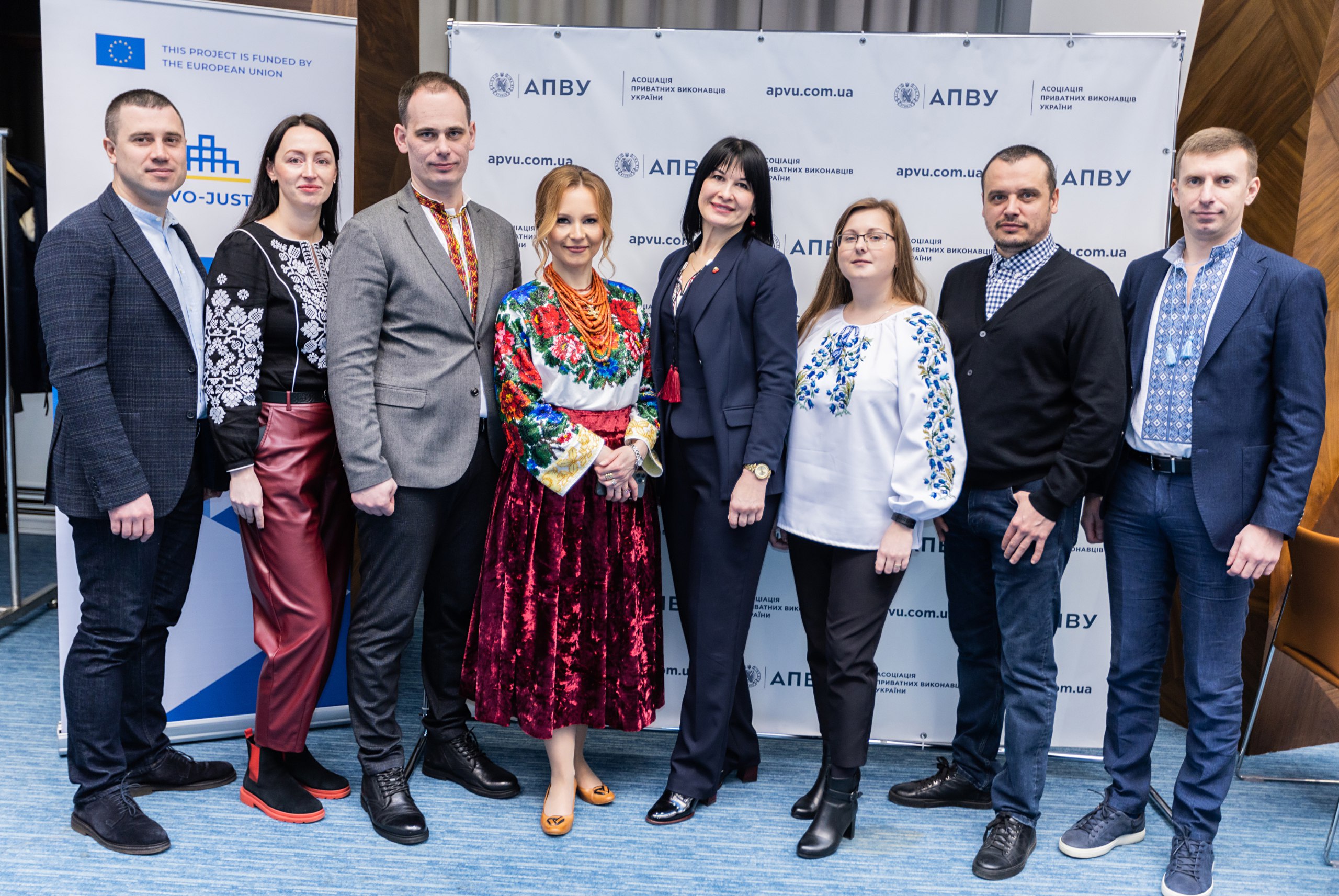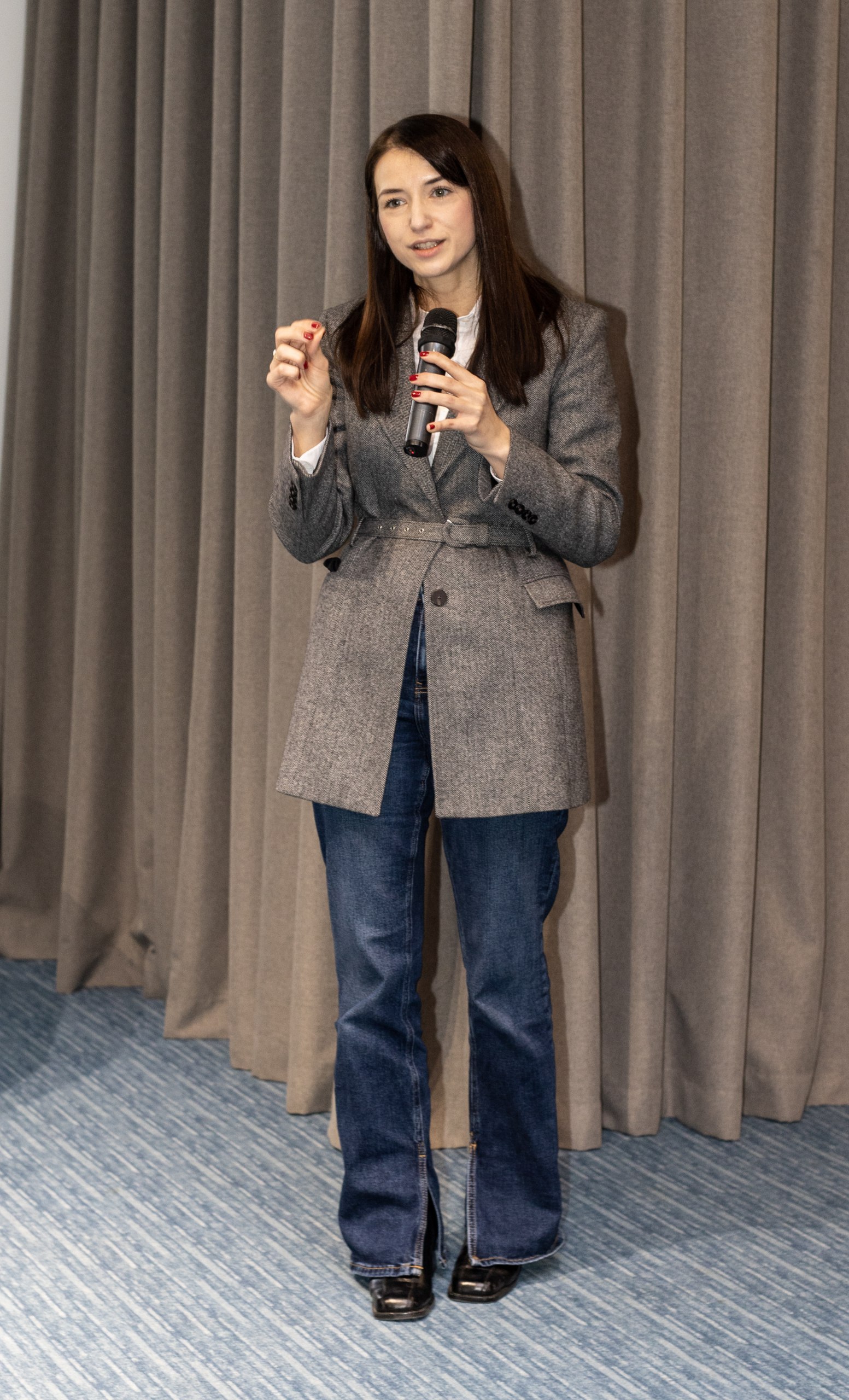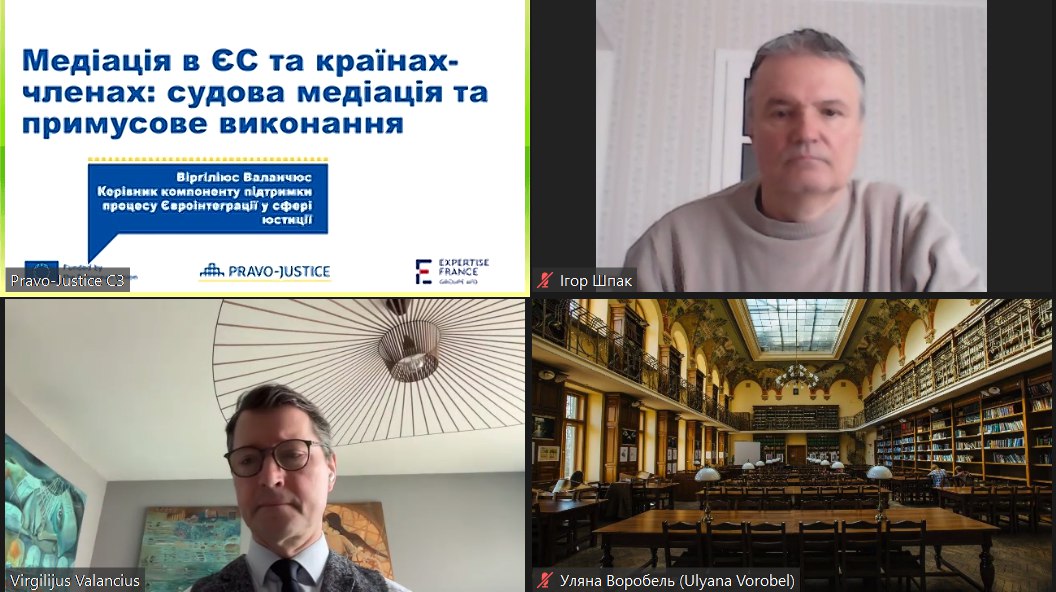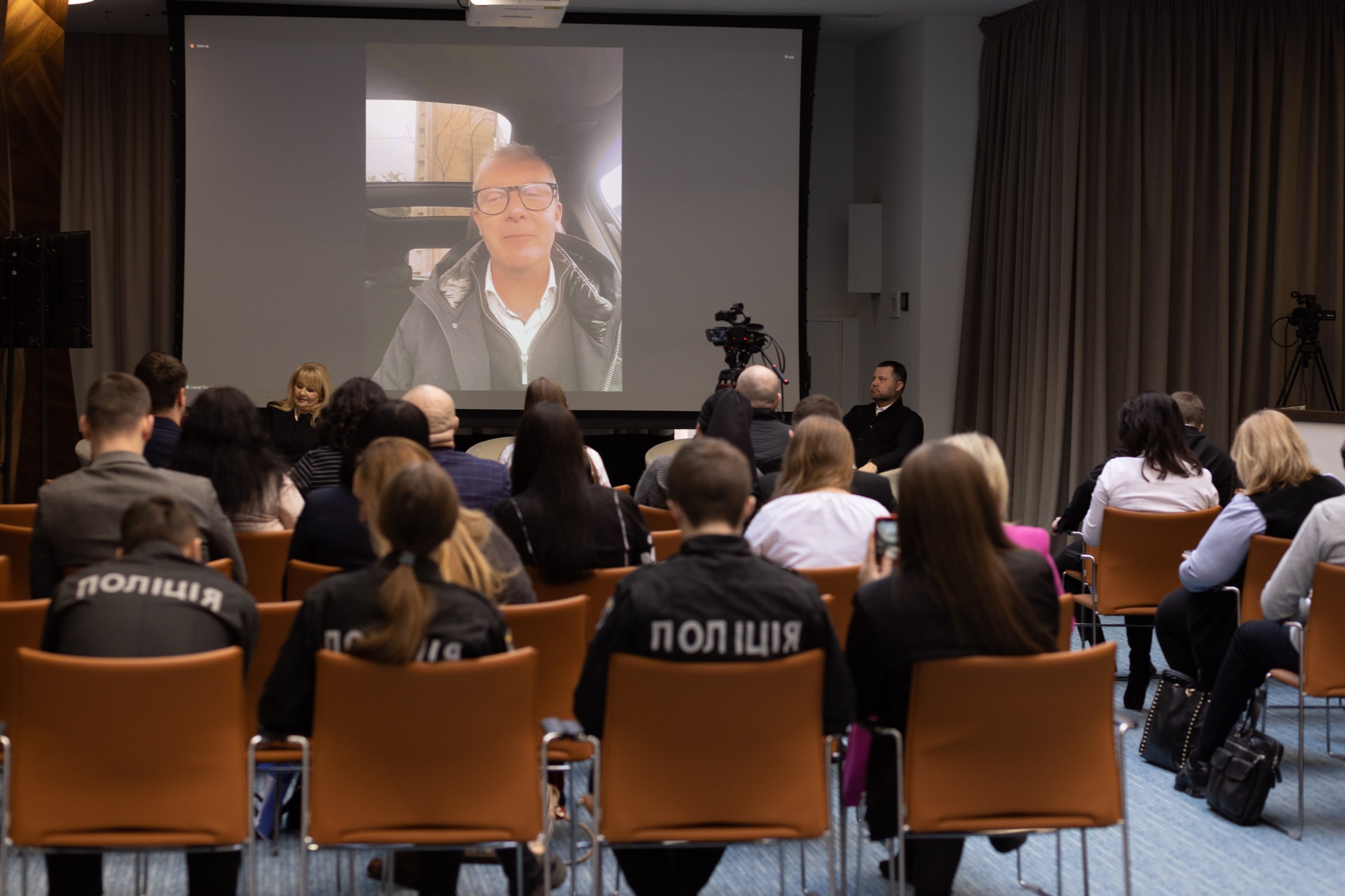With the Support of EU Project Pravo-Justice, the Conference Titled "Mediation in Enforcement Proceedings: Current Challenges and Prospects" was Held

On 16 February, International Scientific and Practical Conference "Mediation in Enforcement Proceedings: Current Challenges and Prospects" took place. EU Project Pravo-Justice supported the event in cooperation with the Association of Private Enforcement Officers of Ukraine. The conference was attended by representatives of the Ministry of Justice of Ukraine, private enforcement officers, mediators, psychologists, lawyers, academics, national and international experts of EU Project Pravo-Justice.

In her welcoming remarks, Oksana Tsymbrivska, Team Leader of EU Project Pravo-Justice, said that the Project has been focusing on mediation and developing the profession of private enforcement officers for several years. According to her, the Project experts have made a lot of efforts so that the framework law "On Mediation" was adopted. Now it is time to proceed further since mediation has significant potential, particularly in enforcement proceedings.
"Modern European practice is increasingly focused on 'debt settlement' rather than outright 'debt collection'. People are looking for flexible and effective tools to solve their problems and value the significant fact that their immediate interests are taken into account when it comes to debt settlement. In this context, mediation is an effective tool for achieving these goals as it is based on the interests of the parties," emphasised Oksana Tsymbrivska.

In her turn, Oksana Rusetska, President of the Association of Private Enforcement Officers of Ukraine, noted that enforcement proceedings always involve a conflict, so enforcement officers must master mediation skills.
"The community is interested in ensuring the continued development of alternative dispute resolution. Private enforcement officers act as mediators in enforcement proceedings more and more often. We hope that in the future, mediation will be an integral part of the enforcement proceedings at the legislative level," said Oksana Rusetska.
Andrii Haichenko, Deputy Minister of Justice, also noted that mediation tools in enforcement are significant and promising.
"We support the idea that disputes should be settled through negotiations, not through pain and suffering such as seized accounts, a ban on travelling abroad and other nasty issues accompanying enforcement," assured Andrii Haichenko.

In his turn, Virgilijus Valančius, EU Integration Process in the Justice Sector Component Lead of EU Project Pravo-Justice, spoke about mediation in EU Member States in the context of enforcement.
"Enforcement officers can perform the functions of mediators in France, Belgium, Italy, the Netherlands, Portugal, Switzerland and Spain. Examples of "post-judicial mediation" as qualified by the International Union of Judicial Officers are rather rare. More common are so-called "participatory" or "amicable" enforcement, defined as an "enforcement procedure that allows parties to reach an agreement on enforcement terms and conditions under the authority of the enforcement agent and the supervision of a judge," said Virgilijus Valančius.
The expert also emphasised the position of the European Commission for the Efficiency of Justice (CEPEJ) that the enforcement agents" because of the qualities of impartiality, neutrality and confidentiality inherent to their function, appear to be the ideal professional to act as mediators in the context of alternative dispute resolution".

Lionel Decotte, judicial officer (France), also spoke at the event. He explained how mediation is used in enforcement proceedings and dispute resolution in France. According to him, under French law, in some cases, before going to court, the plaintiff must try to settle the dispute through mediation; otherwise the claim will not be registered. These cases include, in particular, disputes between colleagues or disputes up to EUR 5,000.
"A judge can also initiate mediation at any stage of the proceedings if he or she believes that the parties can reach an agreement on their own. It is also envisaged that enforcement officers may use mediation tools at the stage of enforcement of a court decision," emphasised Lionel Decotte.
Moreover, the conference participants focused on the legal regulation of mediation in enforcement proceedings. In particular, Olha Verba, advocate, member of the Disciplinary Commission of Private Enforcement Officers under the Ministry of Justice of Ukraine, stressed that it is necessary to establish a legislative mechanism to guarantee the remuneration of a private enforcement officer if the parties to the proceedings have concluded an agreement following mediation. She also stressed that the mediation agreement should be made binding. This is primarily to prevent unscrupulous debtors from abusing their rights and delaying the enforcement of a court decision.
Nataliia Kovalko, Professor of the Department of Financial Law at the Taras Shevchenko National University of Kyiv, mediator, also focused on the shortcomings of the legislation governing mediation at the stage of enforcement of court decisions. She pointed out that, according to the legislation, enforcement proceedings may end by signing a settlement agreement. However, "settlement" and mediation are different legal institutions in terms of their essence and legal nature.
"A settlement agreement is always a compromise. Mediation can be a consensus and a transformation of the vision regarding the consequences of enforcement or non-enforcement of a court decision," said Nataliia Kovalko. The scholar also stressed that it is necessary to govern the procedure for initiating and resorting to mediation at the stage of enforcement proceedings. Moreover, according to her, it is essential to conduct awareness-raising activities to ensure parties to the enforcement proceedings are better informed about mediation.
"Bearing in mind that Ukraine is committed to European integration, it is essential to ensure approximation to the standards and practices of the EU Member States as to using mediation in the enforcement of court decisions," added Nataliia Kovalko.
In conclusion, Oksana Tsymbrivska again reiterated how important it is to promote mediation. In her opinion, this tool has become extremely important in wartime. She reminded the conference attendants that the Project team has developed a comprehensive Communication Strategy on Mediation and respective practical guidelines on how to communicate about it.
"To achieve a result, it is important that all stakeholders communicate together and consistently. This means that information about mediation in any format and via any communication channel should look uniform. Using a unified visual identity for mediation will make the service more recognisable, emphasise its professional image and create unity among all stakeholders," summarised Oksana Tsymbrivska.
Video recording of the conference is available here.